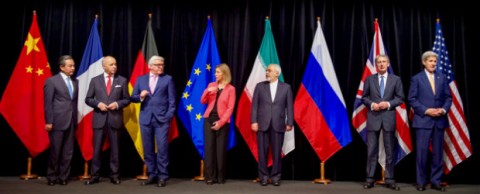Dealing with Iran

In a forceful speech at American University, President Obama laid out in a few words the best argument there is for the nuclear deal with Iran: there’s “no plausible alternative,” he said. “The choice we face is ultimately between diplomacy or some form of war.”
The deal struck with Iran by the United States and five other countries calls for Iran to curb its nuclear weapons program and admit international inspectors in exchange for the lifting of oil and financial sanctions. Twenty-nine leading scientists in the United States, including some of the top experts in arms control, say the accord contains “more stringent constraints than any previously negotiated nonproliferation framework.”
A military action to destroy Iran’s nuclear facilities would unleash chaos and succeed only in delaying Iran’s nuclear program. Another suggested option is to double down on the strategy of economic sanctions and hope that it succeeds in altering Iran’s behavior. But the sanctions that have been in effect did not deter Iran from getting as far as it has with its nuclear program. And that a program of international sanctions could be maintained indefinitely is not certain. It is in this context that the negotiated deal is the most plausible option.




